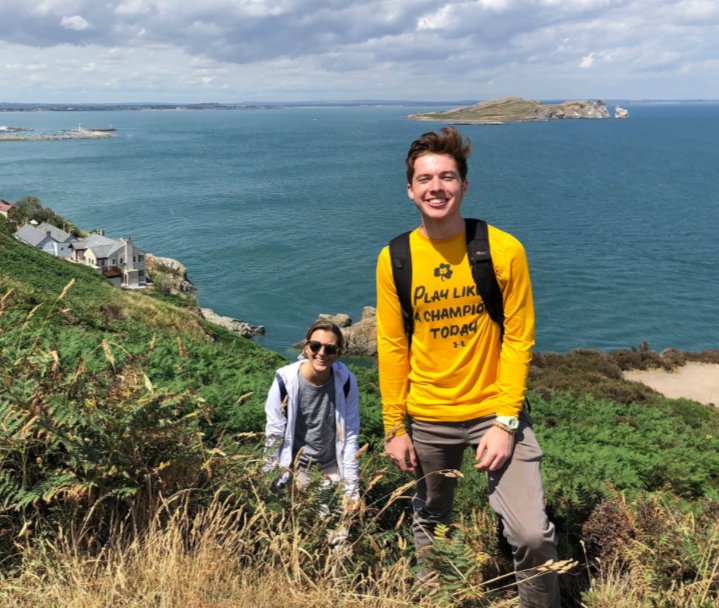For many high school students, summer is a time to disconnect from school year stress. For many parents of high school students, summer is a time fraught with anxiety over whether their teens are “making the most” of their time away from school. How sad! Whether your are a student or a parent, please don’t sweat summer.
Even if you are a student or parent who has no money to your name, there are plenty of ways high school students can stay active and engaged over the summer while developing their interests and building important life skills.
Yet, if you do have some dollars to spare, there are some wonderfully enriching summer programs for high school students out there – and I mean way out there – in Europe. My three current favorites are detailed below.
These programs will give curious, adventurous, intellectual, and inquisitive high school students the chance to burst out of the often-banal high school classroom and into the “old world” in order to engage in an amazing experiential learning opportunity that will be both perspective-expanding and a chance to take a deep dive into preexisting interests. This is so important because no matter what a student does over the summer, it should present value added to both the student and to colleges the student may want to apply to later.
Before we start the countdown, an important disclaimer: exploring pre-existing interests deeply over the summer in Europe seems like a win-win to me; however, the following list won’t be for everyone, and it shouldn’t be. The most important thing for students and parents to remember is that students should pursue their passions deeply over the summer. If they can’t afford to take part in the programs below, that’s fine! They still should develop skills and knowledge over the summer that can only come through some sort of immersive summer experience. Again, I detail some closer to home and dirt-cheap options here.
But, without further ado, for the purposes of why we are here today, let’s hop on the plane to Europe!
#3. TASIS: The American School in Switzerland Summer Programs

Student taking part in TASIS summer program in Lugano, Switzerland
In 1956, M. Crist Fleming founded The American School in Switzerland, the first American boarding school in Europe, in order to apply the American independent school tradition to Europe. All these years later, the school has grown leaps and bounds, and other TASIS schools operate in England and Puerto Rico. TASIS’ summer course options in Switzerland really wow me.
Students pick one class from a diversity of options, which means that a diversity of students will be intermingling on this lovely southern Swiss campus for the duration of your stay. Class options offered recently include Intensive Italian, Fine Art Portfolio, Lean Startup Masterclass, Architecture & Design, and Fashion & Textile Design . My favorite option, however, is La Cucina Italiana: Italian Cooking, in which students learn to cook authentic Italian food after choosing ingredients at local Italian markets, touring Italian cheese and meat factories, practicing knife skills, and learning how to perfectly balance spices.
Why I love this program: As a former “undecided” student as I began my college career, TASIS’ diverse offerings speak to the undecided teen in all of us, and the overall program certainlys attract a diverse mix of summer students from all over the world. Students need more opportunities to simply try something new and meet peers with diverse interests, and TASIS’ Switzerland summer program certainly allows for that in a location that can’t be beat. If you can’t get inspired to learn more about yourself and the world around you while on TASIS’ Lugano campus, you can’t get inspired anywhere. Another upshot of this program is that all high school students, no matter their grade level, are able to take part.
Who it’s perfect for: Students taking part in this program should have the desire to immerse themselves in one course and maybe one sport (sports cost extra but include Milan Academy Scuola Calcio, Olimpia Milano Basketball, and Crossfit) in the unsurpassed setting that is Lugano, Switzerland, which is also a wonderful jumping off point for educational European excursions near and far. Students who are undecided on their path in college and beyond will find something to try at TASIS over the summer and have the chance to do so in an environment that seems almost too perfect and made for life-long memories. Students whose interests align with one of the course offerings are in the unique position to build upon this preexisting interest in the company of peers who may have very different academic and personal interests but who share an interest in spending time in the pre-Alps over the summer.
Learn More: Click here.
Alternative worth considering: TASIS also has intriguing summer options for high school students in England, France (see more below), and Puerto Rico.
#2. University of Notre Dame: Pre-College Program in Ireland

High school students taking part in Notre Dame’s pre-college program
It shouldn’t be so surprising that the Fighting Irish run a summer travel tour seminar worth one college credit for rising high school seniors in Ireland. Notre Dame’s Pre-College Program in Ireland allows rising high school seniors to explore “bustling Dublin,” “bucolic Connemara,” edgy Belfast, and so much more during a twelve-day jaunt through the Emerald Isle.
“Guided by Notre Dame faculty and local scholars, students will embark on an exploration of Irish culture, history, and landscape through what Notre Dame’s O’Connell House calls ‘learning through the soles of your feet.'”
Why I love this program: It’s pretty immersive in terms of ground covered and it’s pretty cool that students live and learn at the Kylemore Abbey Global Center, which is right next to a castle, during the last leg of the program.
Who it’s perfect for: Students taking part in this program should have demonstrated academic achievement in high school and some sort of preexisting interest in Ireland, Irish Heritage, Irish History, Catholicism, Protestantism, place-based learning, European culture and/or History, 20th Century History, European History, the British Isles, castles, and/or the Northern Ireland Peace Process in order to get the most out of this experience and in order to have it align with other activities they’ve pursued in the past.
Learn More: Overview and More Details
Alternative worth considering: Notre Dame also has a summer program for rising high school seniors in Rome.
#1. The New School: Parsons Paris Pre-College Studies

Sunset in Paris, France
If you are an artist, there are few better places to visit for inspiration than Paris, France. Did you know that Parsons School of Design, part of The New School in New York City, has a campus in Paris where rising high school juniors and seniors – they must be sixteen by the time the program begins – have a variety of summer art course options from which to choose? The immersive courses of study at Parsons Paris last just over three weeks in July and cover topics ranging from “Explorations in Drawing,” “Fashion Design Process,” and “Fashion Photography: History and Process” to “Graphic Design Workshop,” “Introduction to Design and Management,” and “Fashion Illustration.”
Why I love this program: This program is for serious artists; each class meets daily from 9:00 a.m. to 4:00 p.m., so it’s for those who are energized by developing their craft. All Parsons Paris Summer Intensive Studies courses are not only educational in their own right; each course counts for three college credits and may also be used by students to develop a portfolio for their upcoming college admissions process. Students also have the chance to take part in excursions, including crepe tastings.
Who it’s perfect for: Students taking part in this program should have demonstrated artistic achievement in high school and some sort of preexisting interest in Art generally or specifically fashion, fashion merchandising, drawing, graphic design, photography, and/or art history in order to get the most out of this experience and in order to have it align with other activities they’ve pursued in the past.
Learn More: Overview
Alternatives worth considering: If you don’t need to be in France, but want a lot of what Parsons Paris’ summer courses offer, Parsons also has a pre-college/intensive summer programs for high school students at its main campus in New York City. Meanwhile, if you would love to spend several weeks intensely pursuing your passion for art in France but don’t need to be in cosmopolitan Paris, TASIS (mentioned more above) has an intimate one-of-a-kind at program in the south of France called Les Taipes, which accepts an extremely limited number of students each summer.
 A high school student’s personal wellness and college admissions prospects are best served when a student is being authentic. This is as true during the summer as it is during the school year. Sadly, many students don’t know where to begin when it comes to being authentic, no matter the time of year. In addition, many students suffer from the misconception that the most impressive extracurricular accomplishments in the eyes of admissions officers at highly selective colleges and universities are extracurricular activities that cost an arm and a leg. Nothing could be further from the truth. Let me use an example to make my point.
A high school student’s personal wellness and college admissions prospects are best served when a student is being authentic. This is as true during the summer as it is during the school year. Sadly, many students don’t know where to begin when it comes to being authentic, no matter the time of year. In addition, many students suffer from the misconception that the most impressive extracurricular accomplishments in the eyes of admissions officers at highly selective colleges and universities are extracurricular activities that cost an arm and a leg. Nothing could be further from the truth. Let me use an example to make my point.



 For college-bound high school students, the months between junior and senior years are crucial for jump starting the application process.
For college-bound high school students, the months between junior and senior years are crucial for jump starting the application process.
